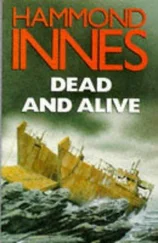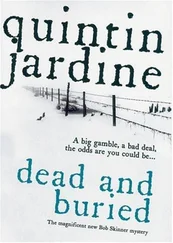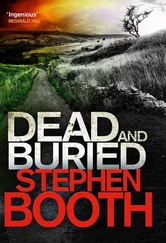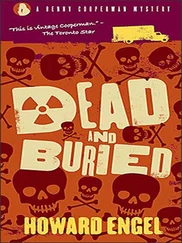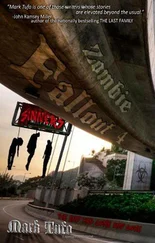Andrew Vachss - Dead and Gone
Здесь есть возможность читать онлайн «Andrew Vachss - Dead and Gone» весь текст электронной книги совершенно бесплатно (целиком полную версию без сокращений). В некоторых случаях можно слушать аудио, скачать через торрент в формате fb2 и присутствует краткое содержание. Жанр: Старинная литература, на английском языке. Описание произведения, (предисловие) а так же отзывы посетителей доступны на портале библиотеки ЛибКат.
- Название:Dead and Gone
- Автор:
- Жанр:
- Год:неизвестен
- ISBN:нет данных
- Рейтинг книги:5 / 5. Голосов: 1
-
Избранное:Добавить в избранное
- Отзывы:
-
Ваша оценка:
- 100
- 1
- 2
- 3
- 4
- 5
Dead and Gone: краткое содержание, описание и аннотация
Предлагаем к чтению аннотацию, описание, краткое содержание или предисловие (зависит от того, что написал сам автор книги «Dead and Gone»). Если вы не нашли необходимую информацию о книге — напишите в комментариях, мы постараемся отыскать её.
Dead and Gone — читать онлайн бесплатно полную книгу (весь текст) целиком
Ниже представлен текст книги, разбитый по страницам. Система сохранения места последней прочитанной страницы, позволяет с удобством читать онлайн бесплатно книгу «Dead and Gone», без необходимости каждый раз заново искать на чём Вы остановились. Поставьте закладку, и сможете в любой момент перейти на страницу, на которой закончили чтение.
Интервал:
Закладка:
“Police,” Clancy said.
“What is wrong?” the voice asked. A woman’s voice, strongly accented. Sounded nervous. But maybe it was a tinny speaker.
“Nothing at all, ma’am. We’re conducting an investigation and we thought you might perhaps be of assistance.”
“Who are you investigating?”
“Could you please open the door, ma’am?” Clancy said, a trace of impatience in his voice.
I could sense decisions being made inside. Suddenly, the door opened. The woman was short, with dark hair cropped just past her nape. She was wearing a denim skirt and a man’s white button-down shirt. Looked around late thirties, maybe younger.
“You are the police?” she asked, hovering between obsequiousness and challenge.
Clancy didn’t flash his badge like most of them did. He took it out slowly, flicked the leather case open, held it out to her, palm up. “You can write down the number,” he said gently. “Close the door, call the station, ask if I am actually a police officer. My name is Clancy. This is Rogers.”
I didn’t react to the instant name-change he’d conferred, just waited to see what would happen.
Clancy smiled. The woman’s mouth twisted as if she couldn’t make up her mind. “Please come in,” she finally said.
We entered a kitchen big enough to be a New York studio apartment. “Do you want coffee?” she asked, gesturing toward a breakfast nook built into a bay window.
“That would be lovely,” Clancy replied. “It’s cold out there.”
“That is not cold,” the woman said, taking a ceramic pot from a fancy coffeemaker and pouring two mugs, apparently accepting that Clancy would be doing all the talking. “Where I come from, this would be springtime.”
“Would that be Russia, then?” Clancy asked her, a brogue creeping into his voice.
“Siberia,” the woman said, with the kind of pride you see in earthquake survivors.
“Ah. Well, here, when the wind comes off the lake, the temperature gets all the way down to—”
“It is not temperature that makes cold.”
“You’re right,” Clancy said, gesturing with his coffee cup to make a salute, dropping the argument.
The woman made a sound of satisfaction. “You said you are investigating …?”
“I did, indeed. But you are not the …”
“Owner? No. I live here. To work, I live here. My name is Marja.”
“And the people who own the house?”
“They are traveling. In Europe.”
“How long have they been away?”
“Oh, maybe couple of months. I don’t keep track.”
“They travel a lot, then?”
“Oh yes. Always they travel.”
“Hmmm … How long have you worked for them?”
“I work for them since I come to America. It will be six years on February third.”
“It must be hard on their work, to travel so much. A doctor has patients.…”
“No. Not anymore. They are retired. No more work.”
“There’s no such thing, is there? No more work,” Clancy asked softly, closing the space around himself and the woman, moving me out to the margins. It was seamlessly beautiful technique, like the six-inch punch you never see.
“No,” she said, sadness somewhere in her voice. “For some people there is always work.”
“It must be difficult for you,” he said, moving me even farther away from the two of them. “So much responsibility.”
“What do you mean?”
“Well, even if they don’t work anymore, they still have to have money. To pay bills. The electric, the phone. The cars. Food. Credit cards. Even to pay you, yes?”
“Sure, they need money. But they have money. And I take care of all the bills,” she said, a different sort of pride in her voice.
“I see,” he said, impressed. “Well, what we really need to do is talk to the people who own the house, you understand. So if we could have the address of wherever they’re staying, we’ll just …”
“I do not have the address,” she said. “When they travel, they go with the wind. They have no plan. I never know where they stay, or when they are coming back. My job is to care for the house.”
“But, surely, if there was an emergency …?”
“There are no emergencies. If something happens to the house, I have numbers to call. The plumber, the electric people, the insurance company. And I know 911,” she said, her mouth twisting again in what I guessed was a smile.
“I was thinking of children. You know how they can …”
“Ah. They have no children.”
A fat cat the color of marmalade pranced into the kitchen. It ignored us disdainfully. The woman got up, opened a tiny can of something, and delicately forked it onto a white china plate. The cat approached, sniffed gingerly, then deigned to take a few queenly bites.
“Katrina is mine,” the woman said, stroking the cat’s lustrous fur. Answering a question nobody had asked.
“You scope the system?” Clancy asked me.
“Windows are wired. Probably to a central-station system. I’m guessing no motion sensors—that cat’s got the run of the joint, I’d bet anything on it.”
“She has to have separate quarters.”
“Yeah. Hard to tell from that kitchen, but I think the space to the left from where we sat, that’s the owners’ area. To the right, that would be off toward the back. Hers …?”
“Let me check a few things. I should have what I need by tonight. You got any in-between outfits?”
“I’m not sure what you—”
“This place where we’re going, you don’t want to look homeless. But you don’t want to look like a lawyer, either, understand?”
“Tell me what kind of place it is, I’ll buy some stuff.”
“Good enough. It’s a blues bar, off Rush Street. Not far at all.”
He gave me the address, said he’d be there by ten.
The side door was rusted out, or else some fool had painted it the color of dried blood. Overhead, a little blue light winked from inside a steel-mesh cage.
I stepped inside, found myself in a two-man bracket: one average-looking, the other sumo-sized. The average-looking guy held out his hand, said “Ten.” I forked it over.
The joint was long and narrow, with a small raised stage at the far end. And crammed so full of people the owner must have bribed the Fire Department. More black than white, but more mixed than most blues clubs. Places I’d been, the high-end spots had mostly all-white audiences, and the juke joints were almost all black. Maybe Chicago was different.
Clancy appeared out of the mob. “Come on,” was all he said.
I followed him to a table right near the front but so far to the right that it was almost against the wall. A woman with corn-rowed hair surrounding a hard face was sitting there. When she saw Clancy, she flashed a killer smile, showing off a gold tooth. She stood up, gave Clancy a kiss. He introduced us, calling me Rogers. Her name was Zeffa.
“Son’ll be on in a minute,” she said to us both. “Should have been on already, but the first set ran long.”
We took seats. I was thinking … Son? … but didn’t get my hopes up.
I looked around for the woman in the red dress. There’s always a woman in a red dress in joints like this. I wanted to be sure I wasn’t sitting too close to her.
The drummer suddenly cracked out a back-beat, hammering the talk-buzz into silence. The guy working a stand-up electric bass added a line, the harp man cranked off a few sharp notes, and the rhythm guitarist carried the lead for a minute, building. An unmanned black guitar rested against the front-most microphone stand.
A slim man strode out on the little stage. He was all in black, including a cowboy hat with a heavy silver medallion just over the brim. His coat was so long it was almost a duster. He reached down, picked up the black guitar … and the crowd went berserk.
Читать дальшеИнтервал:
Закладка:
Похожие книги на «Dead and Gone»
Представляем Вашему вниманию похожие книги на «Dead and Gone» списком для выбора. Мы отобрали схожую по названию и смыслу литературу в надежде предоставить читателям больше вариантов отыскать новые, интересные, ещё непрочитанные произведения.
Обсуждение, отзывы о книге «Dead and Gone» и просто собственные мнения читателей. Оставьте ваши комментарии, напишите, что Вы думаете о произведении, его смысле или главных героях. Укажите что конкретно понравилось, а что нет, и почему Вы так считаете.

